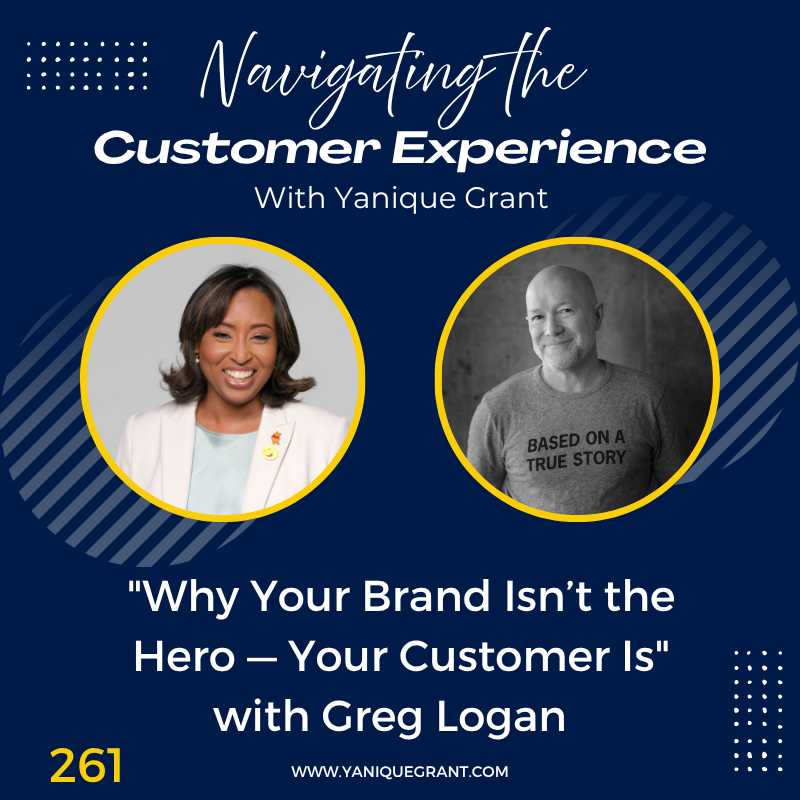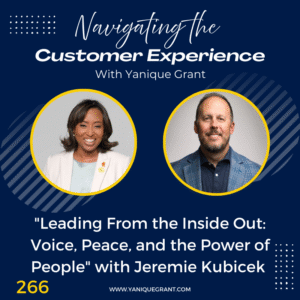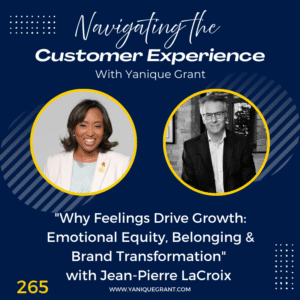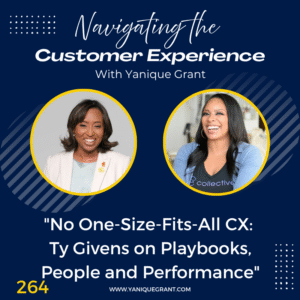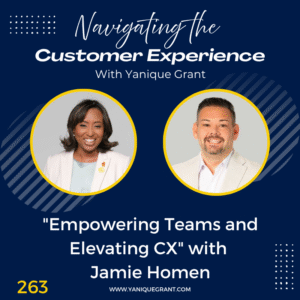Greg Logan is a global leader in brand storytelling. For over 30 years, the world’s biggest brands have turned to him to create stronger messaging that connects with both the head and the heart. He’s a distinguished and rare writer who has won multiple international awards across multiple mediums, including advertising at the (Cannes Lions), television (MIPFormats in Cannes), and film (Crystal Bear, Berlin Film Festival). Mr. Logan has successfully brought all these worlds together to develop unique and hugely successful storytelling formulas for brands big and small.
He has written for Adobe, Capgemini, Forbes, Google, Kellogg’s, Netflix, Qantas, Subaru, Sunglasses Hut, United Airlines, and Virgin. For his clients, Greg splits the year between the US (Los Angeles), Europe (Lisbon), and Australia (Sydney).
Questions
- Can you briefly share your personal journey and how you got to where you are today?
- What are the top three things businesses should focus on to connect with their customers emotionally through brand storytelling, especially for those looking to go beyond just selling a product or service?
- What’s the best example of brand storytelling you’ve seen or created in your experience working with different brands?
- Now, Greg, can you also share with us what’s the one tool, website or application that you absolutely can’t live without in your business?
- Can you also share with our listeners, Greg, I’m sure you’ve read many books clearly because you’re a writer over the years, but if you could maybe think of maybe one or two that you’ve read could be ones that you read a very long time ago, or one that you’ve read recently, but it has had a great impact on you, either personally or professionally.
- Could you share with us what’s the one thing that’s going on in your life right now that you’re really excited about, either something you’re working on to develop yourself or your people.
- Where can listeners find you online?
- Before we wrap our episodes up, we always like to ask our guests, do you have a quote or saying that during times of adversity or challenge, you’ll tend to revert to this quote if for any reason you get derailed or you get off track, the quote kind of helps to get you back on track. Do you have one of those?
Highlights
Greg’s Journey
Me: Now, could you share with our listeners a little bit about your journey? I know we read your bio, and that kind of gives us a little overview of who you are, but we always like to ask our guests to share in their own words how they got from where they were to where they are today.
Greg shared that all his childhood, he wanted to be a copywriter in advertising. He used to love the TV show Bewitched, where Samantha’s husband was a creative in advertising, and he loved what he did. He loved his office, he loved his sloppy desk, he loved how he presented the ads. And he asked his mom at 10 what, what does he do? And she said, he works in advertising, so he never changed. And at 19, he was working for Leo Burnett Advertising, which is one of the big global agencies, and he was in advertising, he was in Leo Burnett for 17 years, and advertising for over 30 years.
He started to have Groundhog Day, and he wanted to do something different. And some of the awards you mentioned, he wrote a short film that won lots of awards around the world, and he thought this is fun. So, he decided to leave advertising after a long time and go into entertainment. And the path he chose was reality TV, because he felt it just matched his skill set of coming up with ideas that answered a brief that could be financially successful. And he moved to LA because of it, and he did really well. He sold 12 ideas to the biggest networks and production companies in 18 months. But these ideas go off into the ether, and it was driving him crazy.
And he started seeing lots of experts talk about why brands need to become better storytellers. As humans, we’re hardwired to love stories that’s in our DNA. And brands don’t use it enough, far too rational and talk about themselves too much.
And he noticed that everyone had really great arguments why brands should become better storytellers, but no one said how. So, he thought that was going to be his job. And he put his two worlds together of brands and entertainment and basically stole the formulas movies used to hook in audiences, very successful formulas to keep us engaged all the way through.
And he translated those formulas for brands, and that’s what he does now. Narrativity is his business, and he’s been doing it for over 8 years, and it’s amazing to say at this stage of his career, that he’s just had the best 8 years of his whole career. He’s created something unique that everyone loves. Everyone wants to tell a better story for their business or themselves, but they don’t know how, and it’s very hard. First of all, if you’re not a writer, but two, you’re too close to it if it’s your business. His toughest client is him, because he too close to his business. So, that’s what he does, and that’s how he got to be here today.
Top 3 Keys to Emotionally Connecting with Customers Through Brand Storytelling
Me: So, brand storytelling, I find it to be a very popular word, especially, I would say in the last 5 to 6 years, everybody’s now a storyteller, especially with all of these various platforms that you don’t even need heavy equipment like before to tell your story.
You can do all of that from the device of your mobile. If you were to identify, as a brand storytelling expert to a novice, because we do have a lot of business owners who listen to this podcast, and customer experience is something they’re trying to improve on. But they want to connect with their customers, not just to be salesy and oh, this is what we sell, or this is a service we provide.
They want to connect with them on an emotional level that the client can basically see, or the prospect can see that this product or service is adding some value to my life. What would you say the top three things that would be critical for those companies to connect with their customers through brand storytelling?
Greg stated that it’s a good question, and you’re so right. He just see storytelling and brand storytelling all the time, and because it’s what he does, he looks at what they’re saying and he’s like, they’re not telling stories. Just because you’re speaking doesn’t mean it’s a story, and just because you’re an influencer doesn’t mean you’re a brand storyteller, and just because you’re a brand that’s talking doesn’t mean you’re storytelling.
It’s kind of crazy. It’s an overused buzzword that’s kind of meaningless now, but that’s why he looked at the world’s best and the most financially successful storytellers of all time, the movies, because the movies use a formula, they overlay their creativity and that different writers create different stories and different characters in different environments and at different times of history, but they all use a formula to make sure they’re engaging the audience every step of the way, it’s called the hero’s journey, and it’s 12 steps. And the hero has a quest at the start of the film that we agree with, and we watch the film to the end to see that quest achieved, it’s never further away than 10 minutes before the end of the film, but somehow it gets resolved, and we have a happy ending, and it’s a really successful formula.
So, the things that business owners and entrepreneurs should do is use a structure. So, rather than everyone has a great story to tell, but the simplest structure of all time is a beginning, a middle and an end, and that structure will keep you focused. But, he calls it the love story formula, because when your audience hears it, they’ll fall in love with you. The reason they will is you start your story with your audience’s greatest tension.
In businesses we just start the story about us and how great we are. And because we think we are the hero, our business is the hero, but we’re not, our audience has a quest themselves, they’re the hero of their own lives, they have many quests every day that they want to achieve.
So, you’ve got to think of your audience as the hero, not you, and you’re the wise guide that comes along the third of the way through the film to help the hero achieves their quest.
And if you can help your customers achieve what they want, you’re invaluable to them. So, that’s why you need to start the story with their greatest tension. And the greatest marketing myth of all time is you can’t say anything negative, but movies work because there’s tension, we don’t have a happy ending unless the hero has overcome obstacles and troubles and danger and killed the bad guy.
And so, how do you create that in business is you start with your audience’s greatest tension, and they may be really busy, they might be stretched for money, they might be stretched for time, their dog is sick, whatever it is.
Start with that tension, because when you say it, your audience is going to go, “Oh, my God, yes, that’s me. That’s my problem.” All of a sudden, they’re really listening to you, because you’ve triggered something in them. And here’s the trick, when you start your story with the audience’s greatest tension, don’t try and force fit your product or business into it.
As an example, he worked for a company from New Zealand that has this beautiful water, and he said, what’s your audience’s greatest tension, they said they don’t have enough pure New Zealand naturally alkaline water in their lives.
And it’s like they’re not thinking about you, and their audience was health conscious, and so they were middle class or wealthy. Well, their greatest tension, regardless of the water, was their lives are busy and getting busier. So, they started the story with, now more than ever, we crave the uncomplicated, the undawned and untainted. And so, that audience goes, “Oh yes, that’s what I want. That’s what I want.” And then you talk about how you solve it.
So, they said, “19.07 water is nature’s remedy from the modern world. From this artesian source, water naturally continually rises to the surface to rebalance and replenish our bodies from daily stresses.” So, then they could talk about themselves. And then they end with their greatest love, which was they just want a simple life because their lives busier. And they said, all we do this constant gift from nature is bottle it, isn’t that refreshing. Now, that story got this New Zealand Company into Whole Foods in America, into Ralph’s, Erewhon, Trader Joe’s, like they’ve made millions from that story. And they used to go into Whole Foods and say, “We’re from New Zealand, and we have naturally alkaline water. We’re from an ancient artesian source. Our water is beautiful, tasting and healthy.”
And Whole Foods said, “We’ve got 3 of those, 10 of those, 12 of those, and you’re more expensive than all of them go away.” So, if you lead with the rational, your audience will answer with the rational, and it won’t always add up. But if you trigger their greatest tension and then talk about how you solve it, and then end with their greatest love, you’ve got them.
Best Example of Brand Storytelling from Experience
Me: So, Greg, you’ve worked with many different brands. If you were to pick one story, either that you’ve written or one that you’ve really loved how they told their story. What’s the best brand storytelling that you’ve ever seen in your lifetime of doing this type of work?
Greg stated that’s like saying which is your favourite child. He’s going to tell you the one, it’s certainly not the biggest, it’s not the longest. It was a simple story. And this is a really valuable thing for your listeners to think about. He talked about why movies work because the hero has a quest that we agree with, and the movies have a very simple formula for it.
What does the hero do?
Who do they do it for?
And what value do they add to the lives.
So, Star Wars Luke, what does he do, saving, who for, the galaxy and the value, defeating the dark side.
In Finding Nemo, dad was finding Nemo, and that was it, that was the value he had to the lives. And that was the name of the film.
For a small business owner, for a small business lender, relieving business owners from the pressures they’re up, it’s a very simple structure that you just say, what do you do first? Who do you do it for? And evaluate to their lives. And it’s very powerful, because people see the benefit of what you do, why you matter to them in the simplest, most conversational way, and you don’t get bogged down in how you do it or why you do it. You just create a statement that the audience goes, I want to see that achieved.
So, another example. His business, what does he do? Helping, who? Businesses, the value add to their lives is helping businesses become loved brands.
So, every business goes I want, yes, I want to see that achieved.
So, an answer to your question, he did the love story, the quest formula for a palliative care organization. And it’s not the normal, it’s not insurance or dog food or whatever that he normally does.
But when they did the quest formula for what do they do, giving, who for? People
And the value they add to their lives, giving people their best death possible.
And he teared up when they came up with it. They teared up when they came up with it, because it was just such a beautiful truth of what we all want, what we all want in life, and it turned something that was very difficult to talk about, and how you sell that.
And palliative care companies would probably talk about care and respect and years of experience and all of that which everyone sounds the same. But if you go to a palliative care organization and they say, “We’re going to give you the best death possible, or we’re going to give your mother.” that’s what you want.
So, he’s worked for huge organizations, he’s made very rich companies even richer, but it’s those moments like that, with the palliative care company and you make such a difference to them. They’re the things he enjoys the most.
App, Website or Tool that Greg Absolutely Can’t Live Without in His Business
When asked about online resources that he can’t live without, Greg shared that he works in the world of brand storytelling, so there’s not many applications other than AI where people are using AI to write for them, is something that the people who are, you get impressed because it does it so quickly, and it sounds impressive. But what you’ll see is AI is writing every business with the same voice and the same messaging and the same tone, and he now read things, and I go, AI wrote that, and all of a sudden he doesn’t respect the organization or the person that wrote it.
And there’s people he’s been following for years as experts, and now he goes, “I know AI is writing that, because I can hear AI.” And all of a sudden, he goes, “Why am I reading this from you, because you’re not writing it.”
So, where he uses AI as a writer, he writes it and create a unique tone of voice and in how he writes, and then he gets it to edit it, and he sometimes take its advice, or sometimes he doesn’t, or they go do a couple of rounds. Sometimes you go, “Wow, that’s just made it so much tighter,” or “I hadn’t thought of that” and that is a really great way to use AI. But try and give it a distinctive tone of voice, create three personality traits that are unique to you.
Or another little hack is, think of a famous celebrity that you really like how they talk, and it may be Ryan Reynolds, or it may be Oprah, or it may be David Attenborough and say, “Write this as if Ryan Reynolds said it.” So, put in your business, it’s a really fun thing to do. If you take something you normally say for your business, put it into AI and say, write this as if it was Ryan Reynolds. And you’ll go, that is so much fun. You may not want to be a fun brand, but you may go, write this from David Attenborough, and it’s really quick and easy to do, and all of a sudden it creates a unique voice for you, not just the generic AI.
So, you still get the benefit. And even you can put a mix of people, you go, oh, I like that person, that person, AI will learn it, and AI knows what those people sound like. And he finds that is a really great way if you’re going to use AI for your writing, is just make it unique.
And another website you should go to is www.storytellingquiz.com. He’s bit biased because he just created it, but it’s very helpful because they never do a messaging health check. They never take the time to stand back and go, “How is my story stacking up?” And he’s broken down, he spent quite a while breaking down all the fundamental pillars of strong storytelling, whether it’s structure, clarity, tone of voice, all of these different things. And it’s a simple quiz where he just ask you multiple choice, or there’s sliding scales, and where do you think your story sits in this, this chain, and at the end, he rates you, he rates your story and tell you how you can do it better. And it’s something, as he said, people never do, but it’s free, and it’s called www.storytellingquiz.com, so that’s another website people can check out.
Books that Have Had a Great Impact on Greg
When asked about books that have had an impact, Greg shared that he just wrote a book, it just was released a month ago, called Creating a Blockbuster Brand: Hollywood’s Storytelling Secrets For Your Business. And he has to say, he’s a creative, he reads lots of books and he watches lots of movies and TV shows, but business books he was never really engaged with, but he started reading them because he was writing one and certainly ones on storytelling.
And he was continually disappointed in business books, and he would get to the end and he went, “You could have said that in 10 pages.” Isn’t that the truth about business books? You could have done that in a PowerPoint slide. And he thinks people write them because they’ve become an author and they become an expert. But when he wrote his book, he wants every page to be valuable, he just wants people to run through it and go, wow, there’s so much in there. And maybe there’s too much stuff in there. He’s not going to recommend a business book.
The Tao of Pooh (Winnie-the-Pooh), it’s a really wonderful book. Do you know the book, so, it takes, like Chinese philosophy and applies it to Winnie the Pooh, and it’s the most wonderfully simple, beautiful, poignant book of life lessons, it’s really surprising. And if he thinks about movies, the most successful movies are ones that mix genres. So, instead of just being a comedy or a romance, it’s a rom com. And when you overlay different genres, you make it fresher and more unique, but also you capture more audiences. And The Tao of Pooh does that in a way, it takes kind of philosophy but then takes one of the most loved kind of children’s character of all time and puts it together. And he has a friend who every second time he sees him, he goes, “You just remind me of The Tao of Pooh, like that’s your luck.” And maybe it’s a guiding principle for him, he doesn’t know. So, that’s one for the listeners, but also, obviously, now you Yanique.
Me: I’m going to buy it as soon as this interview ends. I’m going on Amazon and I’m going to buy it. I love Winnie the Pooh. I have a Pooh here on my bed that I sleep with every night. I don’t know why I’m declaring this on my podcast. I wear Pooh pins when I go to customer service training. I have a pin for all of my shirts. When I took my daughter to Disney last year, we took pictures with Pooh and Piglet and the whole family. I mean, I am an avid supporter of Pooh, and I have everybody around me knows that I love Pooh. So, when you said that a while ago, I was just like, you are my new favourite guest.
Greg shared that he thinks you are going to start teaching people in your workshops some of the lessons.
Me: The philosophy is awesome. Awesome, I’m excited to get the book.
What Greg is Really Excited About Now!
When asked about something that he’s excited about, Greg shared that as he said, he’s created these formulas to help brands become better storytellers. And when his clients are talking to him, they often talk about how they’re innovating, and they all started businesses that were innovative. And so, they think they’re an innovative company. But he would say, “Well, great, what are you innovating?” They’re like, “We’re creating an app.” He’s like, well, Whoopie do. It’s 2025, like, wow. Everyone has an app.” And what he realized is, businesses call it innovation, but they’re just creating things the business needs, rather than actually innovating for things that people don’t have but really want. So, he thought, how can he use his storytelling formulas and techniques so his clients could innovate and create to the story their audience wants to hear.
So, he’s working with a wonderful UK AI research company called BoltAI, and they’ve created a product called Foretold, where he works with his clients and their research and development teams and their product teams, and they create quests and stories for what could be, not what is now, but what could be, and then overnight, he puts that into research, and the next morning they come in, and they have the results of what consumers think of these ideas.
And then they go again, and they create new ideas and new stories based on what people told them, and in just over a week, they have a pre-approved customer ticked new product or experience or whole business that saves this company time and effort and a lot of money developing something that may or may not connect when it’s launched. And now, they know they get excited and go ahead full on and develop it, because they know customers are looking for it. And so, it enables them to truly innovate in the most efficient way.
So, it’s brand new. They did a big session with an insurance company that created a product from scratch, and it’s so exciting, and it’s so different, and people who did have insurance and people who didn’t have insurance at the start of this process was completely different, way, way apart, and by the end, both audiences said, “We want this product now.” So, that’s what he’s most excited about. It’s taking his brand storytelling to a different thing, to create something new, rather than just telling the story of something.
Where can listeners find Greg online?
Instagram – gregloganofficial
LinkedIn – Greg Logan
Website – http://www.narrativity.com/
Quote or Saying that During Times of Adversity Greg Uses
When asked about a quote that he tends to revert to, Greg shared, “Suck it up.”
That sounds harsh, but there is a simple truth in that because, so many people around the world and through history have had to deal with such hardships. And if you really, really think about the problem, and it is, it’s huge, whatever we’re going through right now. And right now, he’s having a huge problem and frustration with social media, and all the things he has to do for it and it’s like, “Poor me, suck it up Greg. Because it’s just your social media.” So, he just thinks suck it up, because especially if you’re an entrepreneur, this is your choice. It’s up to you. It’s up to no one else but you. And he thinks once you take that attitude, you go, “You know what, all of a sudden, it’s not as bad as I thought it would be.” And related to that, he always just goes to the worst-case scenario, and go, “What does that look like?” And all of a sudden, it’s not as bad as you think. And then everything else is icing on the cake and you feel a lot better.
Me: Amazing. Suck it up. First, I’ve heard that one, but we’ll definitely have it in the show notes of this episode.
Well, thank you so much, Greg, for taking time out of your very busy schedule and hopping on this podcast. Your nuggets of wisdom and experiences that you shared with us has really been insightful. I’ve gained a lot and I’m going to buy a new book after this interview. I know that our listeners would have gained great value from this interaction that we had. And I just want to express my deepest gratitude to you for taking time and sharing this information. I think what you’re doing is awesome, and I wish you all the very best as you launch these different initiatives and continue to really stand out in the space of brand storytelling.
Please connect with us on X @navigatingcx and also join our Private Facebook Community – Navigating the Customer Experience.
Links
- Creating a Blockbuster Brand: Hollywood’s Storytelling Secrets For Your Business by Greg Logan
- The Tao of Pooh (Winnie-the-Pooh) by Benjamin Hoff
The ABC’s of a Fantastic Customer Experience
Grab the Freebie on Our Website – TOP 10 Online Business Resources for Small Business Owners
Do you want to pivot your online customer experience and build loyalty – get a copy of “The ABC’s of a Fantastic Customer Experience.”
The ABC’s of a Fantastic Customer Experience provides 26 easy to follow steps and techniques that helps your business to achieve success and build brand loyalty.
This Guide to Limitless, Happy and Loyal Customers will help you to strengthen your service delivery, enhance your knowledge and appreciation of the customer experience and provide tips and practical strategies that you can start implementing immediately!
This book will develop your customer service skills and sharpen your attention to detail when serving others.
Master your customer experience and develop those knock your socks off techniques that will lead to lifetime customers. Your customers will only want to work with your business, and it will be your brand differentiator. It will lead to recruiters to seek you out by providing practical examples on how to deliver a winning customer service experience!

